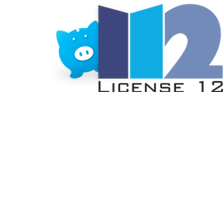Avoid Force of Deadlines

Software vendors have developed great methods to let time work for them, according to their sales quarters. Sometimes they delay, and suddenly make it urgent. Establish your own schedule first and then question the deadlines imposed on you. This requires a thorough understanding of your current inventory and proactive planning. Always take the time required for a thorough analysis. Communicate countercyclical to promote your own interest and question the vendor’s schedules.
Control Communications

Effective negotiations cannot tolerate a breach in governance. Establish clear procedures directives about how information exchange should be performed with the vendor and make sure that negotiation lines are originating only from one source. Internal roadmaps should not be shared, except in a custom version that spell out the issues to support your negotiation position. A vendor will persue their opportunity but does not need to know the full truth.
Explore the Vendor’s Agenda

Each procurement cycle generates a certain expectation on the vendor side. You should add clarity to it straight away. Often, you can gain insights by discussions side remarks or probing questions about the agenda. Once understood, expectations can be managed with an early review cycle. This allows for additional room for negotiation and makes it easier to optimize the balance of transaction volume and associated discount range. The use of a early review cycle permits time for expectation setting and counter proposals.
Modify Your Requirements

You can determine the schedule and quantity, where as the vendor will optimize the discount and other terms in the next deal cycle. Identify the key license products and adjust the quantities up and down, step by step, supported by the right arguments. You will discover that such variations will not reduce discounts adversely, but will give you better prices in the end by the uncertainty raised. Also, by retaining additional license quantities for further discussion will allow your team to retain leverage even after the transaction is signed.
Perform Pro-Active Audit

It is not easy to keep compliance with today’s complex licensing rules. You should always keep your software assets in order by a continuous monitoring of the license utilization, to give your vendor the feeling that you cannot be caught at breaching compliance easily. Ask your vendor for extensive definitions in applying a measurement tool and validate the results from multiple angles. Also establish a mutually agreed audit process which will not allow the vendor to gain leverage.
Make Best Use of Shelf Ware

There is always some shelf ware because vendors will make you buy more against better terms. Always track the current surplus and reduce it, either by exchanging licenses or by resale to the secondary markets. Establish an ongoing update to the license utilization and trigger license recovery to the internal pool, once the usage becomes minimal. And keep stating your disappointment to the vendor about the unnecessary cost of surplus licenses, that will improve your next deal leverage.
Get Current Market Data

A good market survey helps to fully exploit one’s leverage in the next license procurement transaction. But it is hard to get detailed contract benchmarks due to the confidentiality clauses contained in each deal. That is why Doctor-License collaborates tightly with the internet platform License12 that retains a large number of current survey data for analyzing large vendors. With that, your own inventory and new proposals can be analyzed by configurable benchmarks. On this basis it is easier to find new levers for better pricing.





